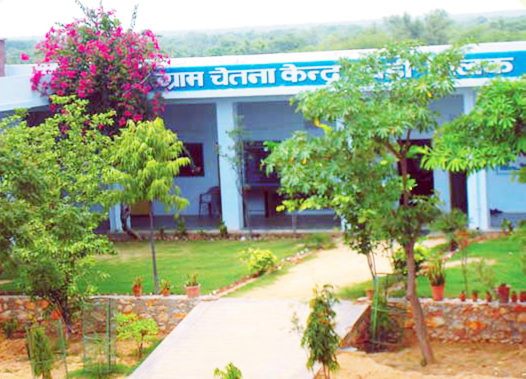Organisation History
A brief of GCK
Gram Chetna Kendra, which translates to Village Awareness Center, was formed in 1986 by a group of socially conscious individuals under the leadership of Mr. Om Prakash Sharma. Recognizing the immense needs of Rajasthan’s rural poor, this group decided to combine their unique knowledge, talents, skills and experience to address the pressing issues facing individuals. Therefore, in 1989, the organization was registered as a voluntary, non-governmental organization under the Societies Registration Act and began formal operations from their campus, which is located in the heart of the project area in the village of Khedi Milak.
Location
This area is located 55km from the state capital, Jaipur, in Sambhar Block of Jaipur District. Before, GCK began working in the area; it had remained virtually untouched by mainstream development efforts, from both national and international sources. As a result, the population faced considerable economic challenges stemming from the lack of education, health care and government services, as well as the persistence of traditional beliefs and unequal power structures.

Facing these challenges, the group of founders dedicated themselves to improving the lot of the rural population; however, the means to achieve this they believed, was through the inherent potential of the people themselves. It is with individuals that the power to bring about sustained and positive development rests, therefore, the team at GCK visualized its role as that of a facilitator in the processes of harnessing this power and helping people to realize the possibilities they are capable of creating.
Over the years, GCK’s development activities have covered a range of concepts and methods, drawing on various sources of funding and support. However, the main goal has always been to ensure just and equal opportunities, minimum basic essentials and an improved but dignified quality of life for rural individuals. Initially, projects were focused on improving the welfare of the rural poor through basic needs provision, but they have since evolved to focus more on capacity building. In this way, the goal has become human resource development; improving people’s abilities to realize their potential and to do so in a way that is in harmony with their natural environment.
Today the campus operates as a service and awareness center, promoting people’s organizations, institutions, public education (which aims to counter harmful prejudices, preconceptions and ignorance), advocacy, training and research, in order to allow individuals to enter mainstream society and engage in personal and community development in an equitable manner.
Project area of Gram Chetna Kendra cover 791 villages in 11 Districts of Rajasthan The table below gives an overview of the project area.
| District | Block Name | No. of Villages |
| Jaipur | Sambhar Lake, Bassi | 67 |
| Tonk | Uniara and Deoli | 142 |
| Nagaur | Parbatsar, Zayal, Ladnu | 249 |
| Alwar | Tijara, Thanagazi | 13 |
| Sikar | Dantaram garh | 60 |
| Sawai Madhopur | Bamanwas | 45 |
| Bhilwara | Shahpura | 68 |
| Dungarpur | Simalwara | 74 |
| Ajmer | Kishangarh | 20 |
| Dausa | Dausa | 25 |
| Kota | Ramganj Mandi | 28 |
| TOTAL | 791 | |

